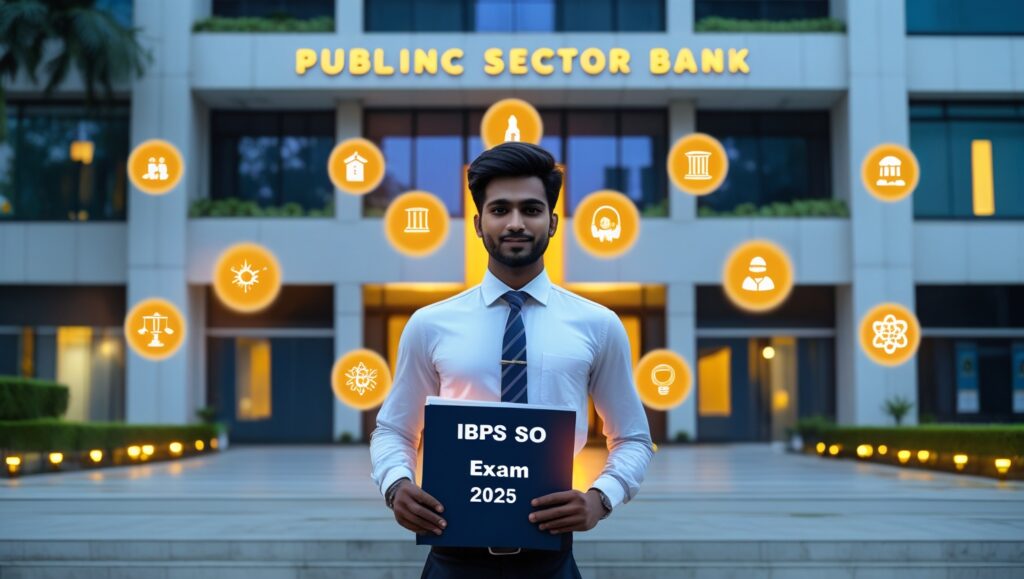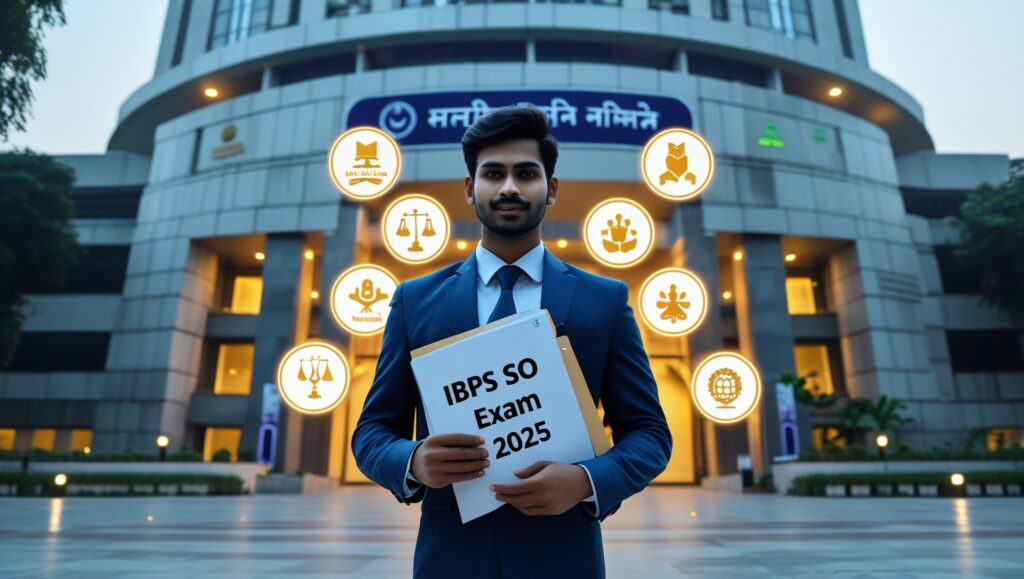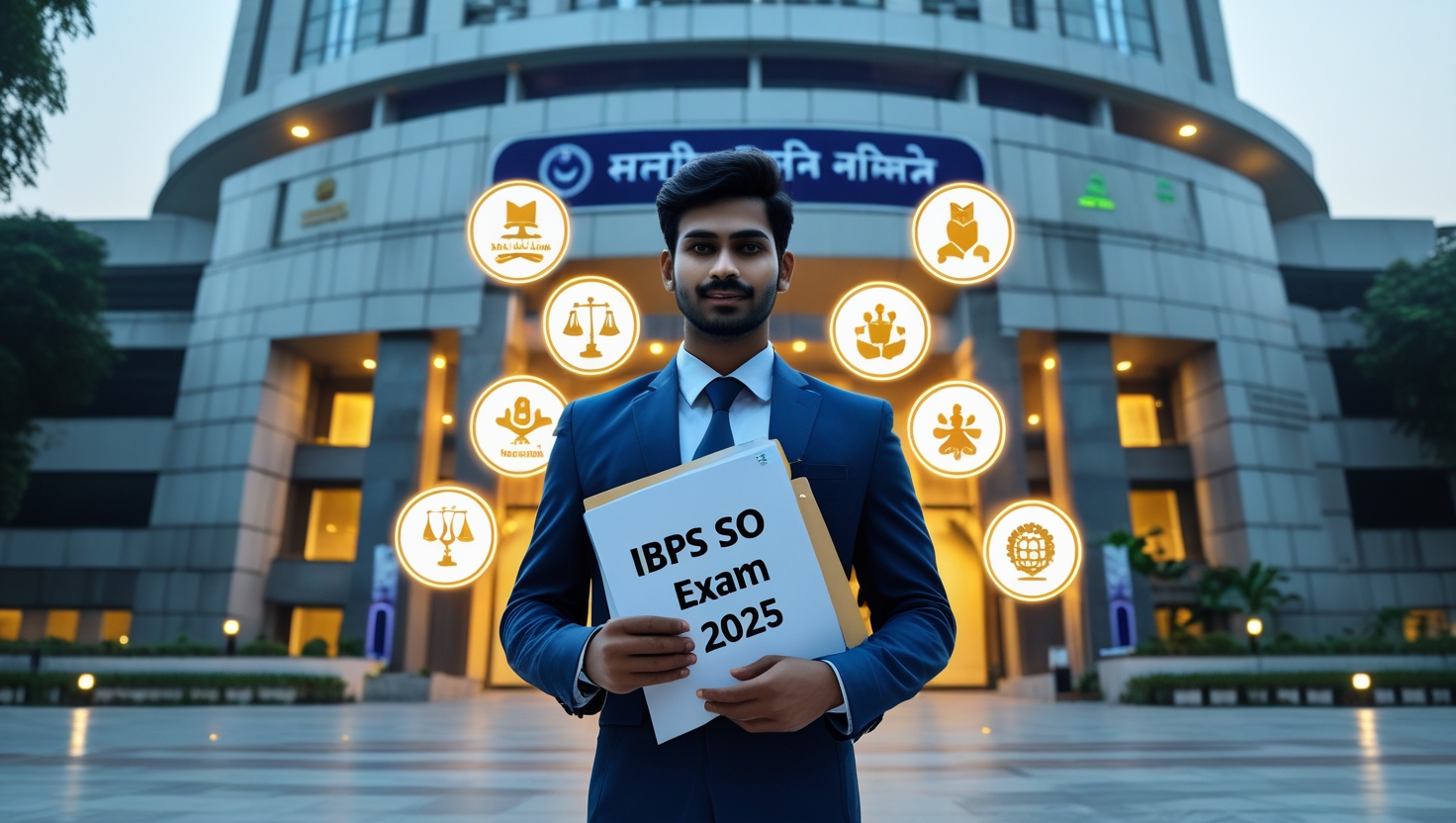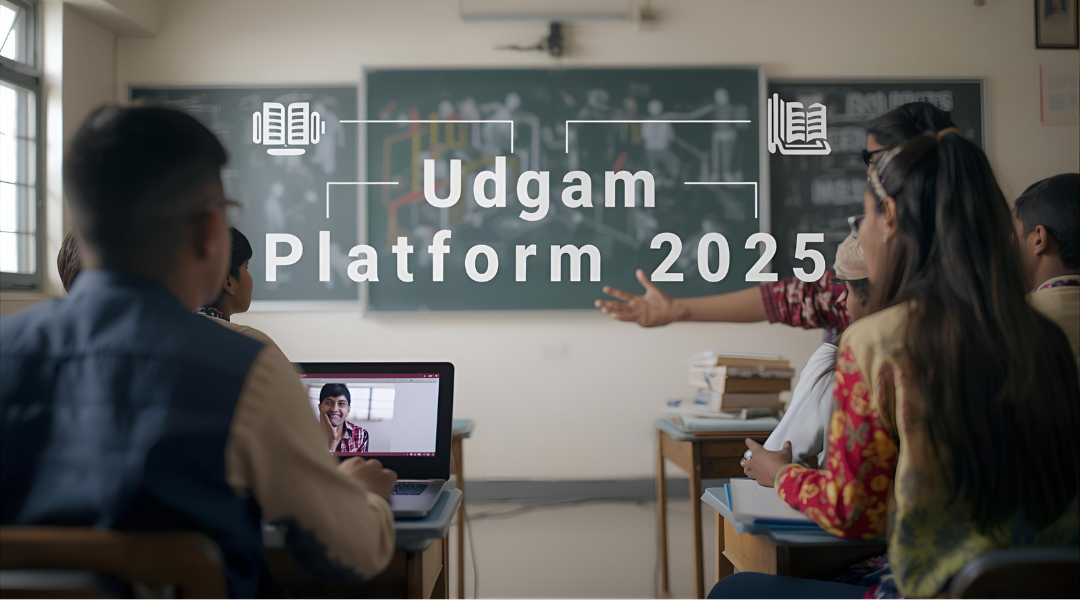The banking sector in India has always been a major employment hub for aspirants seeking stable, well-paying government jobs. Among various roles in public sector banks, the IBPS Specialist Officer (SO) position stands out for professionals with domain-specific qualifications—like IT, Agriculture, Law, HR, Marketing, and Languages. Unlike clerical or general officer posts, IBPS SO is tailored for those who bring specialized skills to the banking system.
This guide will cover everything you need to know—from roles, eligibility, exam pattern, and preparation strategy to career growth and salary structure.
1. What is IBPS and the Role of a Specialist Officer?
IBPS (Institute of Banking Personnel Selection) is the recruitment body that conducts exams for 20+ public sector banksin India. It ensures a standardized, merit-based selection process for a variety of roles, including PO, Clerk, RRB, and SO.
The Specialist Officer (SO) is a Scale-I Officer recruited to handle technical, professional, or domain-specific tasksthat generalist officers are not equipped for. These include IT system management, legal documentation, agricultural loan processing, marketing analytics, human resources, and promoting the Rajbhasha policy (use of Hindi).

2. IBPS SO Posts and Their Responsibilities
IBPS recruits SOs for six different roles, each with distinct qualifications and duties
a) IT Officer (Scale I)
Qualification: B.E./B.Tech in CS/IT or equivalent / PG in IT fields.
Responsibilities:
Maintaining core banking software (CBS)
Cybersecurity, server monitoring
Troubleshooting software/hardware issues
Digital transformation in banking
b) Agricultural Field Officer (Scale I)
Qualification: Degree in Agriculture, Horticulture, Animal Husbandry, Dairy, Fishery, etc.
Responsibilities:
Financial inclusion for farmers
Promoting agri-loans and government schemes (KCC, NABARD)
Field visits and customer engagement in rural branches
c) Rajbhasha Adhikari (Scale I)
Qualification: PG in Hindi with English at graduation.
Responsibilities:
Translating documents to/from Hindi
Enforcing official language policy
Coordinating Hindi workshops in branches
d) Law Officer (Scale I)
Qualification: LLB (enrolled advocate).
Responsibilities:
Legal compliance, handling DRT/DRAT cases
Drafting contracts, notices, and deeds
Supporting recovery and documentation teams
e) HR/Personnel Officer (Scale I)
Qualification: PG or MBA in HR
Responsibilities:
Recruitment, training, performance evaluation
Handling staff grievances and HR policies
f) Marketing Officer (Scale I)
Qualification: MBA/PGDM in Marketing
Responsibilities:
Branding, market research
Promoting financial products (FDs, insurance, loans)
Data-driven campaign planning
3. IBPS SO Eligibility Criteria
Age Limit
Minimum: 20 years
Maximum: 30 years
Relaxations:
SC/ST: 5 years
OBC: 3 years
PwD: 10 years
Ex-Servicemen, etc., as per norms

Educational Qualification (Post-Wise)
| Post | Qualification |
|---|---|
| IT Officer | B.E./B.Tech in CS/IT/EC or PG in CS/IT |
| AFO | Degree in Agriculture or related fields |
| Rajbhasha | PG in Hindi + English at UG |
| Law Officer | LLB + Enrollment with Bar Council |
| HR | MBA/PGDM in HR |
| Marketing | MBA/PGDM in Marketing |
4. IBPS SO Exam Pattern
Stage 1: Preliminary Exam
Mode: Online (Objective)
Duration: 120 minutes
Sections:
English Language
Reasoning
Quantitative Aptitude (for IT, HR, Marketing, AFO)
General Awareness (for Law, Rajbhasha)
| Section | Marks | Time |
|---|---|---|
| English | 25 | 40 min |
| Reasoning | 50 | 40 min |
| Quant/GA | 50 | 40 min |
| Total | 125 | 120 min |
Stage 2: Main Exam
Post-specific professional knowledge
IT, AFO, HR, Marketing, Law: 60 marks
Rajbhasha: Objective + Descriptive (60 marks)
Stage 3: Interview
Conducted by participating banks
Weightage: 80 (Mains) + 20 (Interview)
5. Syllabus Breakdown
Each post has its unique technical syllabus.
IT Officer
DBMS, Operating Systems, Software Engineering
Networks & Security, Programming (Java/C++)
Web Tech, Cloud, Mobile Banking
AFO
Basics of Crop Production
Soil and Water Management
Agri-Economics, Agri-Finance
Schemes: PM-KISAN, KCC, NABARD
Law Officer
Banking Law, DRT Act, SARFAESI
RBI Acts, NI Act, Companies Act
Civil/Criminal Laws, Contract Law
HR Officer
HRM, Training & Development
Industrial Relations, Performance Appraisal
Motivation, Leadership, Labour Laws
Marketing Officer
Basics of Marketing, Market Segmentation
Digital & Social Media Marketing
Product Life Cycle, Branding
Analytics, Sales Strategies
Rajbhasha
Hindi Grammar, Vocabulary
Translation Skills
Government Official Language Policy
Essay & Letter Writing in Hindi
6. Salary Structure and Perks
Basic Pay: ₹36,000 (Scale I Officer)
Gross Monthly Salary: ₹52,000 – ₹55,000 approx.
Allowances:
DA, HRA, CCA
Special Allowance
Lease accommodation or HRA
Medical, Leave Travel Concession, NPS
7. Career Growth and Promotions
A Specialist Officer can grow through departmental exams and performance:
Scale I → Assistant Manager
Scale II → Manager
Scale III → Senior Manager
Scale IV → Chief Manager
Scale V & above → AGM, DGM, GM
With time and performance, SOs can also switch to generalist tracks or reach top management.
8. How to Prepare – Subject-Wise Strategy
English & Reasoning
Practice RCs, Cloze tests, Parajumbles
Puzzle-based reasoning, Input-Output, Syllogism
Follow daily editorial reading (The Hindu/Indian Express)
Quant/GA
DI, Profit & Loss, Time-Speed, SI-CI, Probability
GA for Law/Rajbhasha: Banking awareness, static GK, current affairs
Professional Knowledge
Study only authentic textbooks, coaching notes, RBI circulars (for Law & IT)
Practice case-based questions and scenario-based MCQs
Focus on recent tech updates, marketing trends, HR policies
9. Best Books and Resources
Quant & Reasoning:
Arun Sharma (Reasoning), RS Aggarwal (QA), Fast Track Objective Arithmetic
English:
Wren & Martin, Word Power Made Easy, Norman Lewis
Professional Knowledge:
IT: Arihant IBPS SO IT Officer Guide
Law: Universal’s Guide to Law Officer Exams
AFO: Agriculture at a Glance – R. K. Sharma
HR/Marketing: Kotler’s Marketing, HRM by Gary Dessler
Mock Tests:
Oliveboard, PracticeMock, Adda247, Testbook
10. Frequently Asked Questions (FAQs)
Q. How many attempts are allowed for IBPS SO?
There’s no official limit. You can attempt as long as you’re within the age limit.
Q. Can a final-year student apply?
No. You must have all documents and degrees at the time of registration.
Q. Is it possible to switch to PO role later?
Yes, through internal exams or inter-departmental promotions.
Q. Which is the easiest IBPS SO post?
It depends on your background. For engineers, IT Officer; for MBA grads, Marketing or HR is smoother.
Q. Can I crack IBPS SO without coaching?
Yes, many do. With self-discipline, quality books, and mock tests, it’s absolutely possible.
11. Final Thoughts
The IBPS Specialist Officer exam is not just another government job test—it’s a niche opportunity for professionals to use their technical education in a secure and respected career path. Whether you’re a computer science graduate, a law student, an agriculture expert, or an MBA in marketing, this exam gives you a structured entry into one of the most stable sectors in India.
What truly sets it apart is that it values domain knowledge. If you’re willing to put in 3-6 months of focused preparation, you’re not just looking at a job—but a lifelong career with purpose, impact, and growth.




